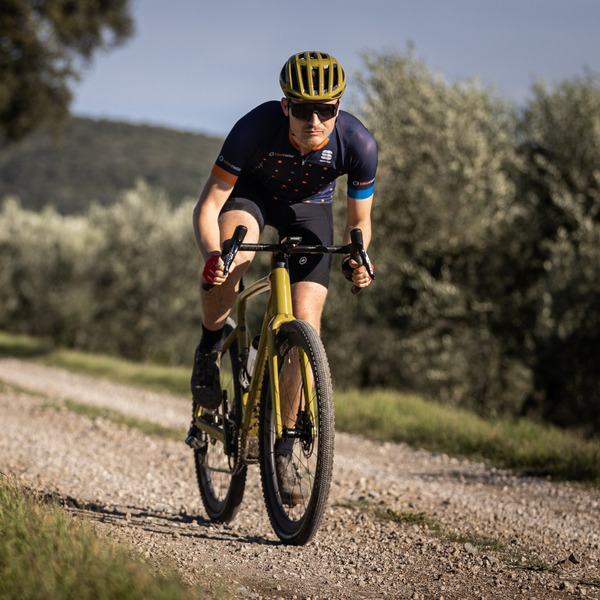The Sturdy Eimar on display at the Bespoked Cycle Show is a time trial bike crafted from titanium with 3D-printed tubes.
The bike was conceived by Tom Sturdy, who until a year ago designed and manufactured frames in his garden shed.
The frame is said to weigh 1.4kg in an unspecified size and the complete bike is claimed to come in at just over 8kg.
Frame details
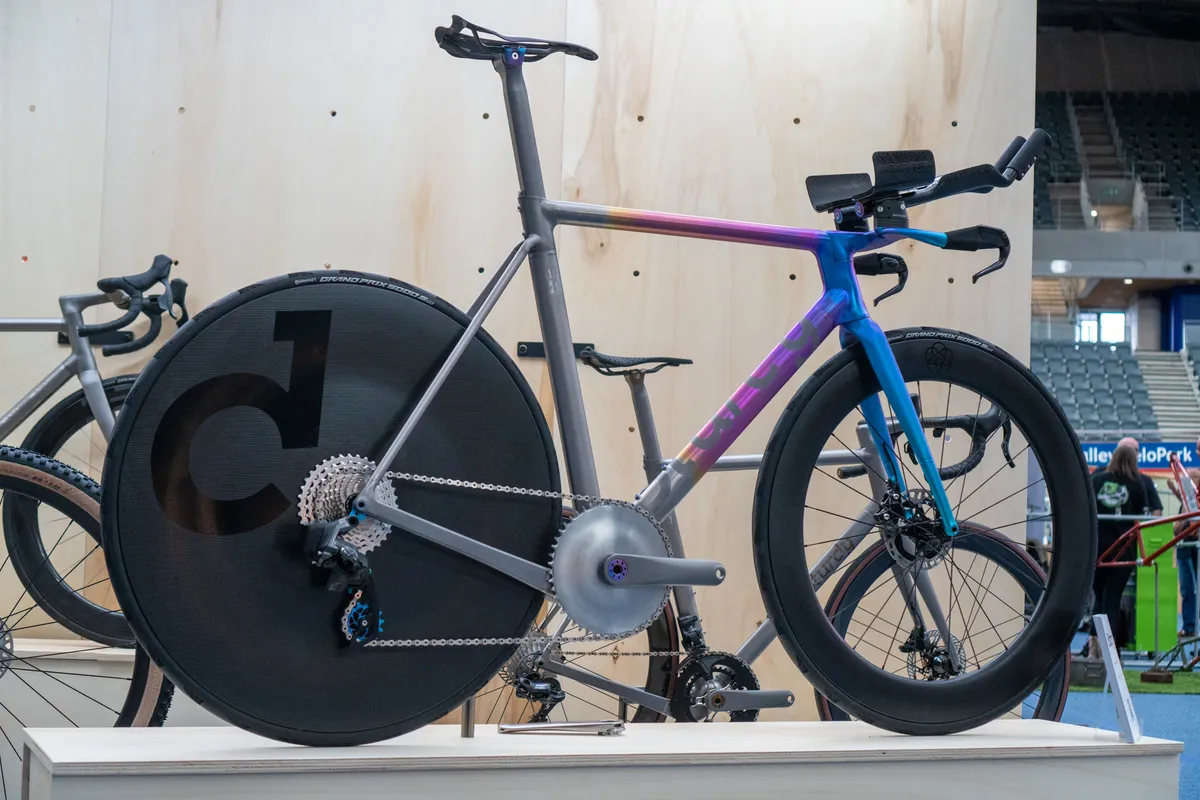
The down tube, seatstays and seat tubes have been roll-formed, where the tubes start out round and are then gradually changed to the desired profile. This is for aerodynamic efficiency, whereas the rest of the tubes are printed.
Sturdy doesn’t make any claims to aerodynamic efficiency but says the bike is designed to be used “in the real world” and he also says it “climbs relatively well”.
The frame uses a custom geometry to suit Sturdy’s own measurements – bike fit is an incredibly important factor for time trials and will mean you can ride faster when in comfort.
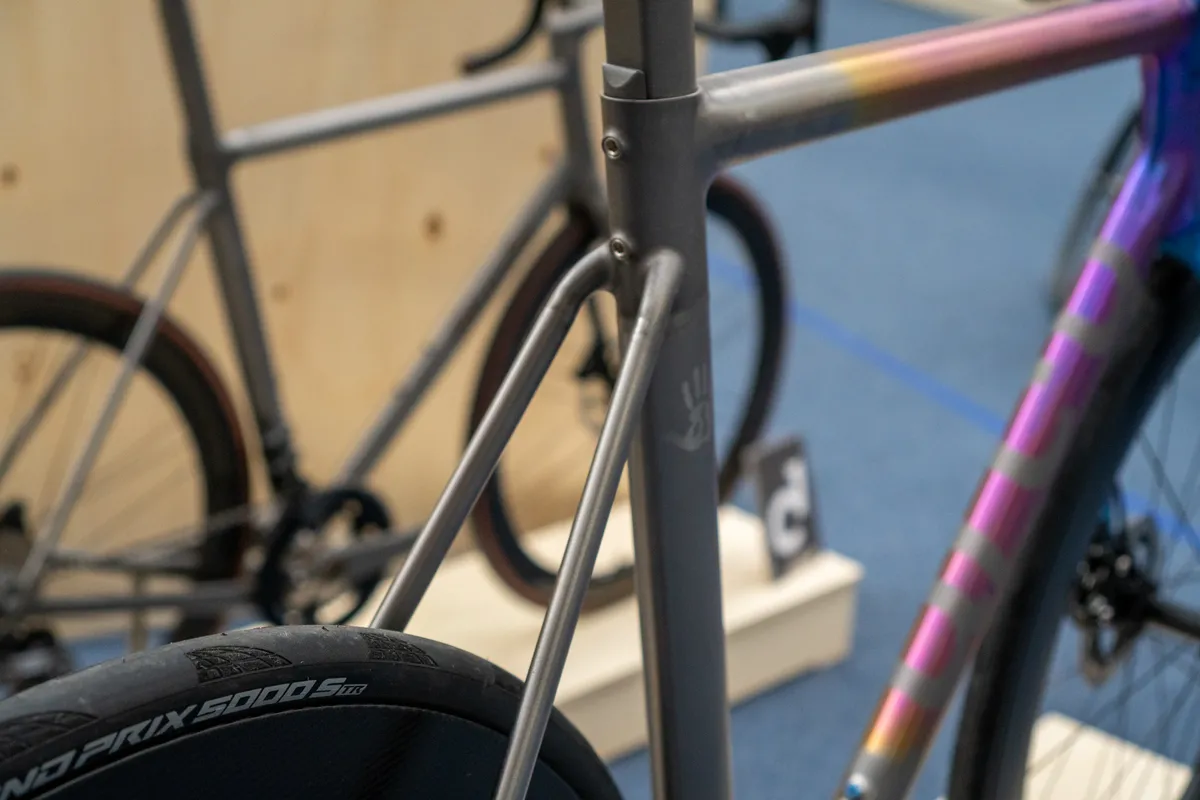
Surprisingly for a time trial bike, it can fit tyres up to 30mm in width, although a 25mm Continental Grand Prix GP5000 S TR tyre features on this build.
The Eimar’s fork uses a D-shaped steerer tube to hide the brake hoses. Sturdy says the frameset is designed around electronic groupsets; the tight angles of the handlebar routing would likely prove an issue for a mechanical gear cable.
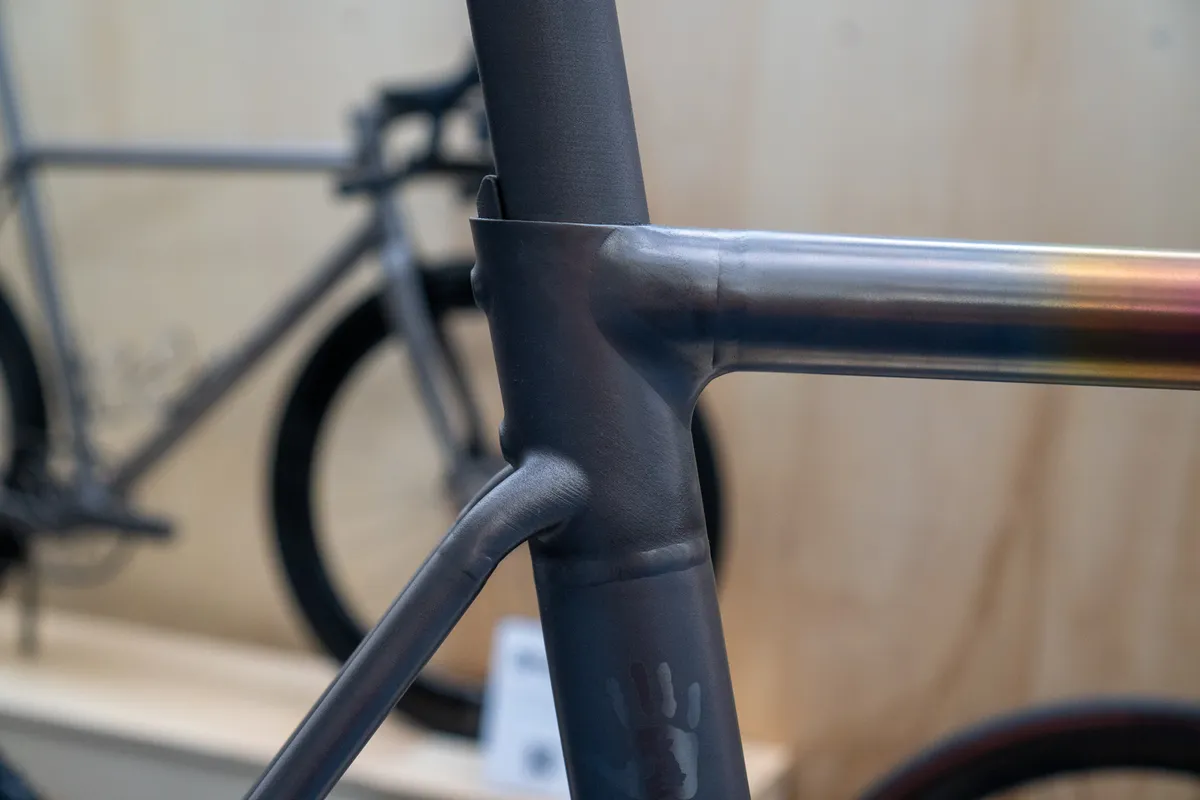
The welds are not in typical locations, but with good reason. Sturdy says he has moved the welds away from where the tubes join each other, as you’d expect them to be welded on other bikes. This is to minimise the risk of failure in peak stress areas.
The bottle cage mounts are positioned low on the down tube for the aerodynamic benefit and it can accept an aero bottle.
Titanium base bar and a WattShop topper
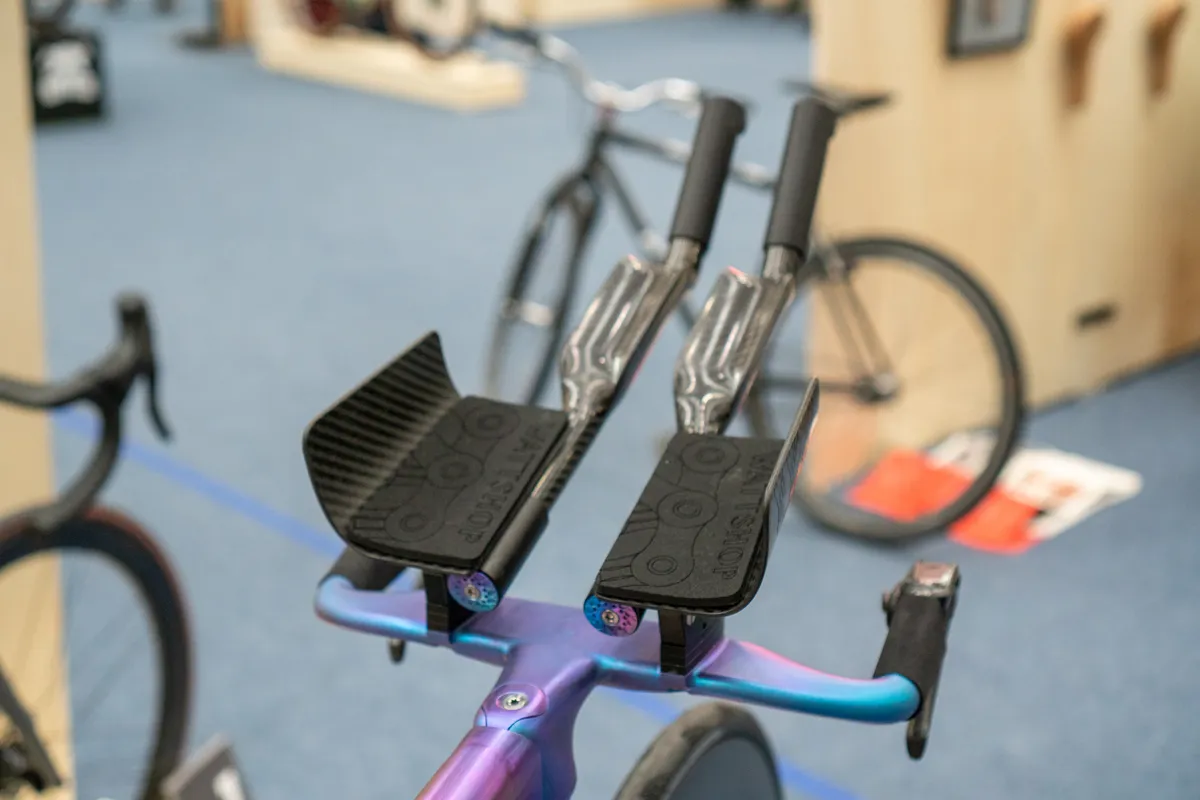
The base bar is constructed from three separate titanium pieces and sees welds either side of the conventional stem clamping area. BikeRadar asked Sturdy why this was welded rather than one piece and he replied it would be “disproportionately expensive”.
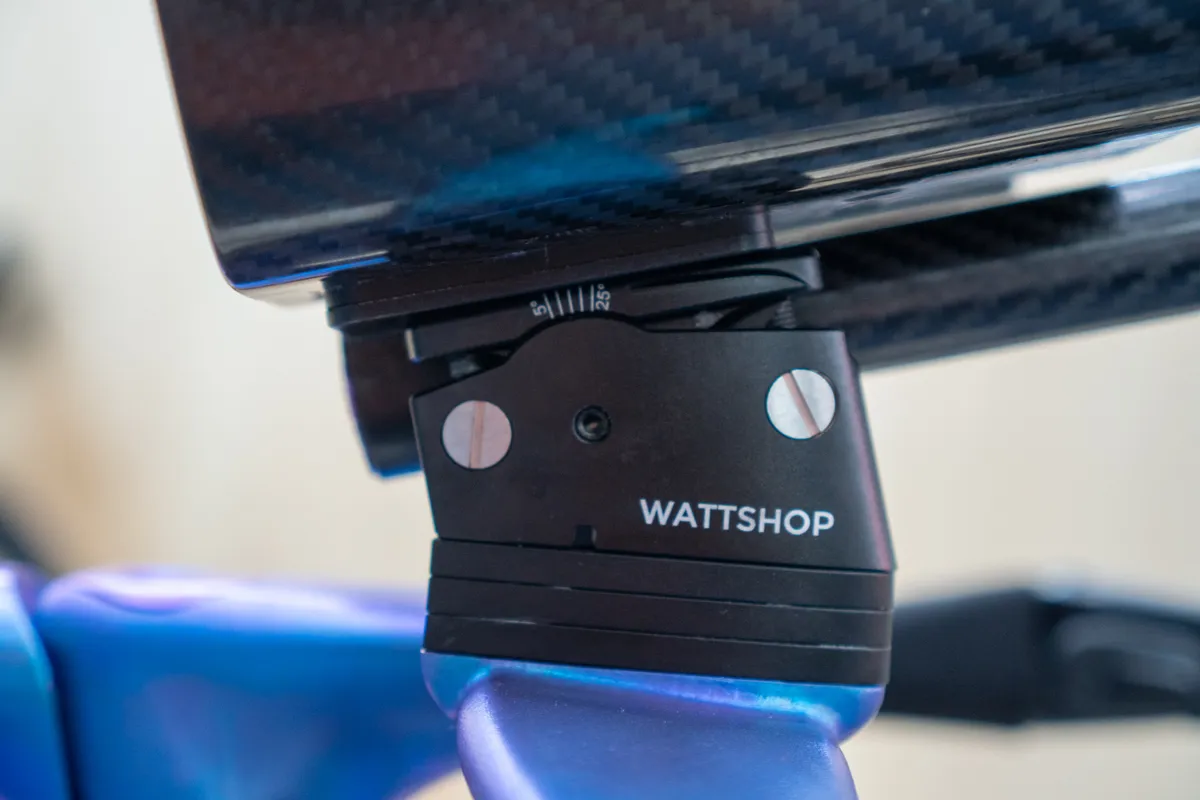
Sturdy has opted to use a WattShop tri-bar for its “ease of adjustability”, rather than create its own design.
The seatpost is 3D-printed to achieve its aerodynamic shape and uses a flat back for clamping purposes.
Own-brand everything, pretty much
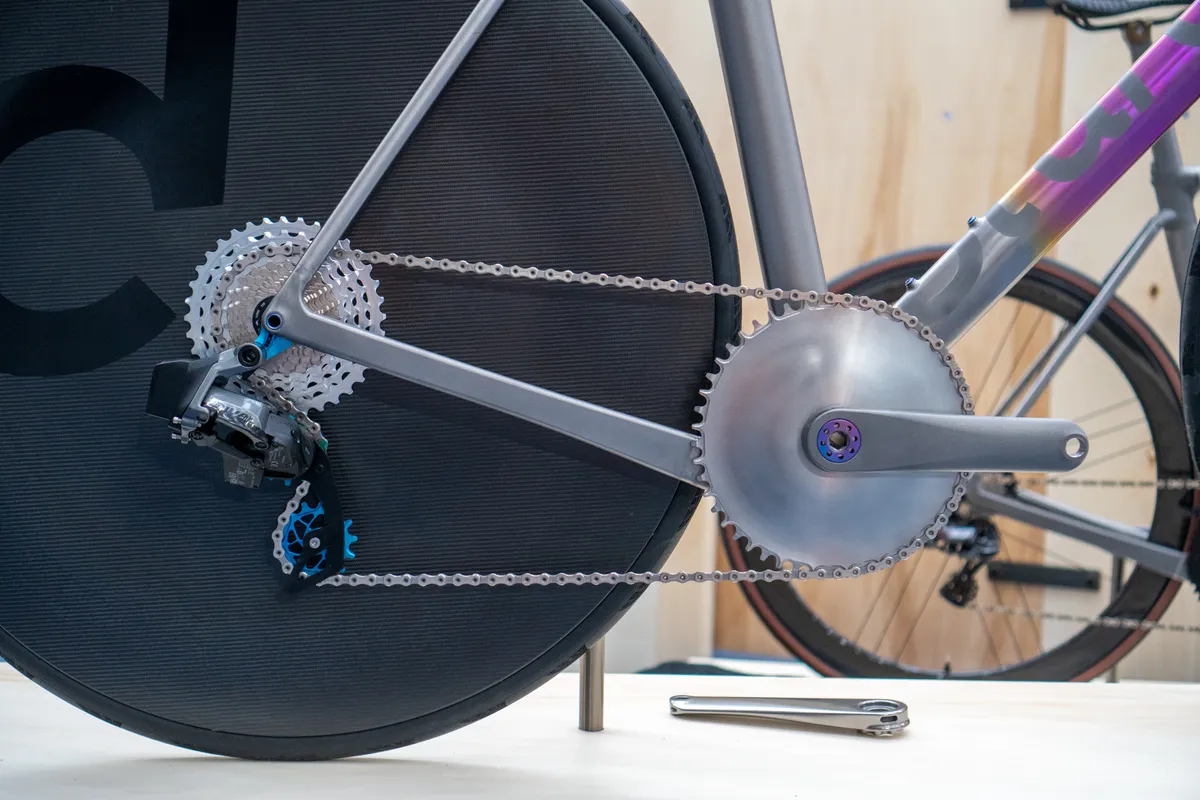
Lots of the parts are manufactured by Sturdy. The crankset, bottom bracket, thru-axles and pulley wheels are own-brand, as are the disc rotor lockrings and bar-end plugs. Even the chainring is titanium.
The bottom bracket cups are titanium because “they’ll last forever” and they house Enduro angular-contact steel rather than ceramic bearings.
The saddle is Slovenian-based Bjorn’s Carbon Sedlo model.
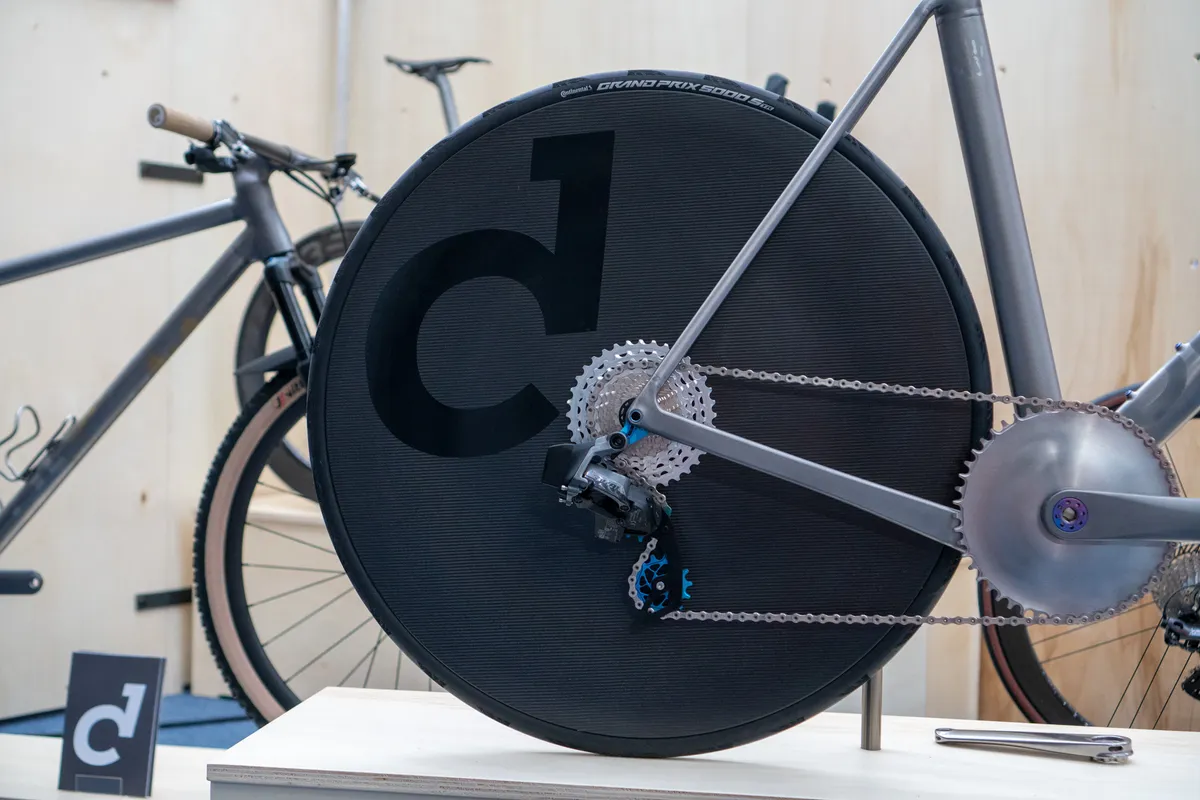
Despite other parts being pricey, Sturdy has opted to deck the bike out with relatively cheap unbranded carbon wheels. He has a disc wheel in the back and a 70mm-deep front wheel.
Because this is his personal time trial bike, Sturdy says he’s opted for these wheels due to budgetary constraints.
He says he finds the wheels to offer “a nice balance of something that rides faster but are still affordable”.
Even with the fiscally responsible wheels, Sturdy estimates the build to cost in the region of £13,000.
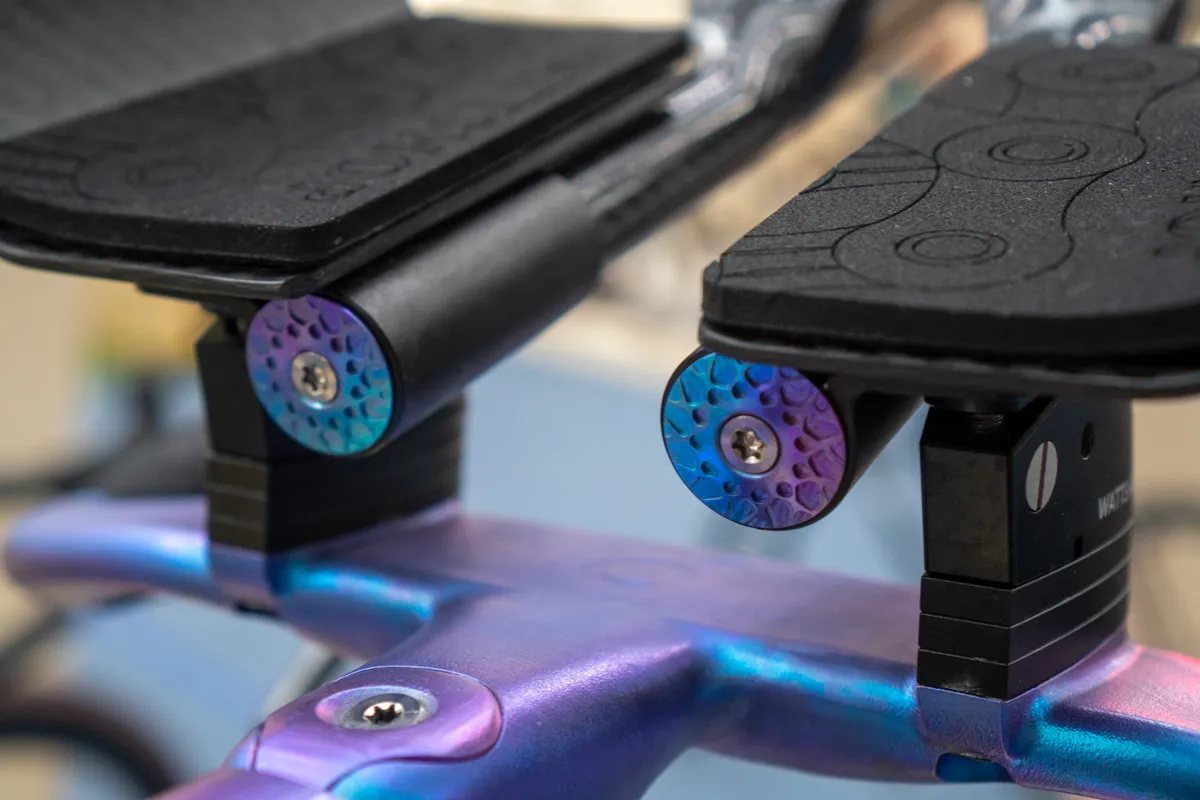
Sturdy specs a SRAM XO1 chain rather than a FlatTop road chain required on eTap AXS setups because he finds “they are more durable”.
He also needs to use this because he is running a Rotor 11-36 cassette, which he prefers due to the smaller jumps and not needing to use a smaller 10t starting cog, which requires its own freehub standard.
Frame kit and custom geometry
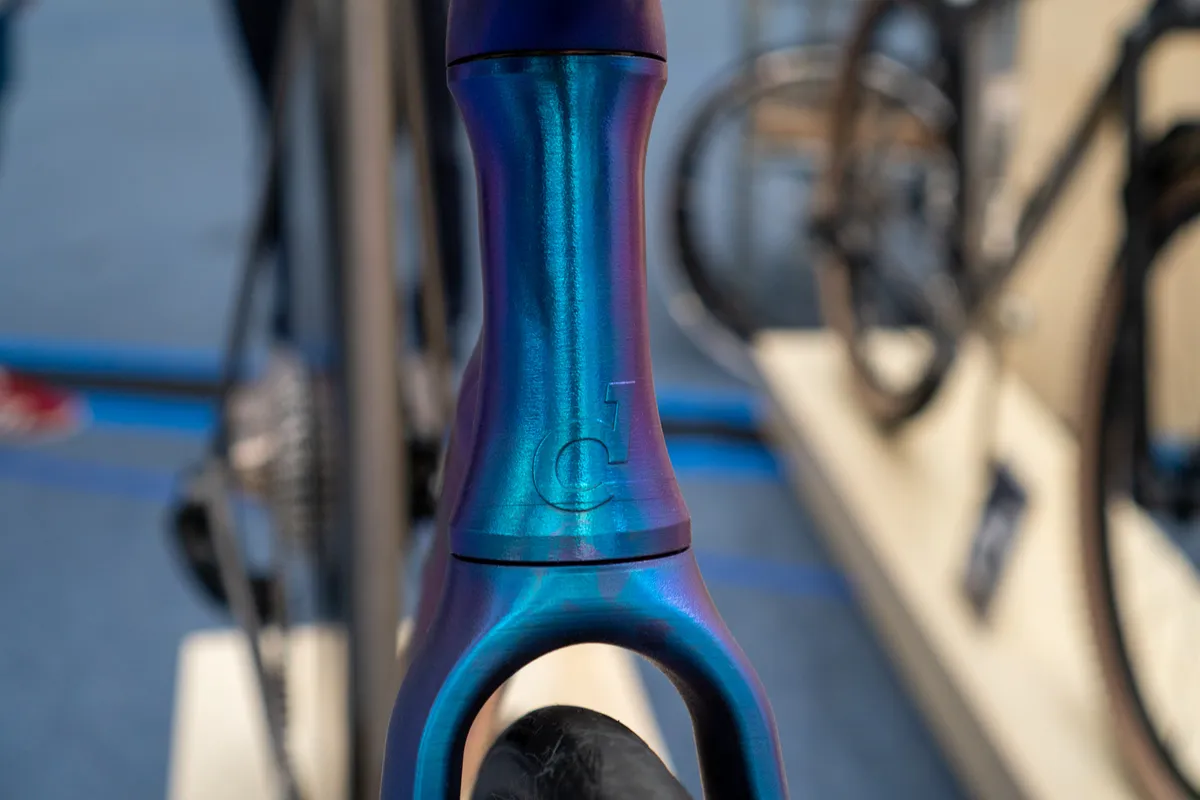
If you’re enticed by the Eimar’s aesthetics, Sturdy offers a ‘frame kit’ (effectively the entire bike without the wheels and part of the drivetrain) for in the region of £11,000.
Sturdy says he can arrange a bike fit or use your current bike fit data to create a geometry proposal. He can also make tweaks to the stiffness or flexibility of certain tubes to suit the rider.
